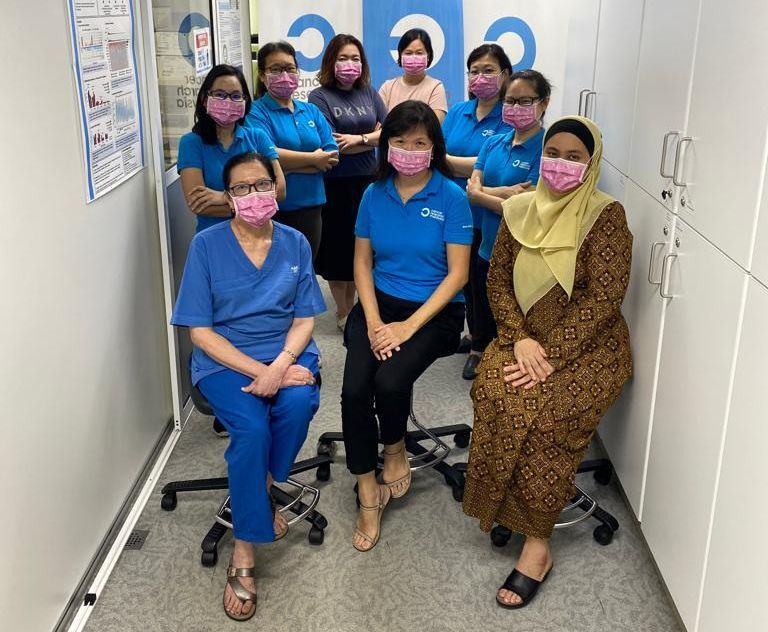KUALA LUMPUR, Jan 25 – Malaysian scientists, in collaboration with a team from Singapore and the University of Cambridge, have successfully developed a genetic tool to assess breast cancer risk for Asian women.
The tool, called a Polygenic Risk Score (PRS), can be used to predict the likelihood a woman will develop breast cancer based on her genetic sequence.
The subsequent results can empower women to decide which screening and prevention is right for them, and help reduce inefficiency, unnecessary cost, and even possible harm caused by over-diagnosis.
“Individualised screening and prevention of breast cancer is important because the majority of Asian women have a low risk of developing breast cancer, and only a small proportion have inherited genetic factors that are associated with an increased risk to the disease.” said Prof Dr Teo Soo Hwang, chief scientific officer at Cancer Research Malaysia and co-lead of the project.
“We have now developed a genetic tool to accurately determine a woman’s risk of breast cancer, enabling Asians to achieve greater equity in access to technology, and pave the way to reducing the gap in survival of cancer in Asians compared to Europeans,” she added.
The collaborative study, published in the prestigious Genetics in Medicine science journal, was the result of a collaboration between Cancer Research Malaysia and Associate Prof Ho Weang Kee, University of Nottingham; Prof Douglas Easton and Prof Antonis Antoniou, University of Cambridge; Prof Nur Aishah Mohd Taib, University of Malaya; Prof Dr Yip Cheng Har, Subang Jaya Medical Centre; Prof Wei Zheng, Vanderbilt University; Associate Prof Mikael Hartman, National University of Singapore Health System; Dr Li Jingmei, Genome Institute of Singapore; and six hospitals in Singapore; as well as three large population-based prospective cohorts from Singapore, South Korea and China.
“The development of an accurate tool for Asian women requires large sample sizes. Unfortunately, the majority of research studies have been on European women, and the resultant tools are less accurate on Asian women.” said Associate Prof Dr Ho Weang Kee, joint first author of the study.
“Our study brought together 58,760 women from Malaysia, Singapore, Japan, South Korea, China, Hong Kong, Thailand, Taiwan, the “US and Canada, giving us the sample size to identify genetic markers that are important for Asian populations.”
This is also the first breast cancer study to adopt multi-ancestry development methods, to gain accuracy by integrating data from 228,951 European women with Asian-specific genetic markers. Our results show that these methods significantly improve the accuracy of the tool,” she added.
“The genetic make-up is not the same for all Asians. For example, the genetic architecture of Malay, Chinese, and Indian women are very different from each other,” said Dr Tai Mei Chee, joint first author of the study.
“Bringing together patients from University of Malaya, Subang Jaya Medical Centre, National University of Singapore Hospital, and six other major treatment centres in Singapore has significantly increased the sample size of Southeast Asians and had enabled us to show that the new Asian tool is predictive of breast cancer risk across the Malay, Chinese, and Indian ethnic groups from Malaysia and Singapore,” she added.
Women are generally recommended to start screening at age 50. However, in most Asian countries, many women who could be at risk of breast cancer do not go for screening. This leads to late detection and a lower survival rate.
“The Asian Polygenic Risk Score is an important step forward and lays the foundation for risk-based mammography screening in Singapore,” said Associate Prof Mikael Hartman.
“Risk-based screening may be particularly important in low- and middle-resource countries that do not have population-based screening, such as Malaysia. Without the funding for population-based screening, identifying individuals with higher risk may be an important strategy for early detection,” said Prof Nur Aishah Mohd Taib, University of Malaya Cancer Research Institute, Malaysia.
There is an urgent need to develop an appropriate screening strategy for Asian women. Malaysia anticipates a 49 per cent increase in breast cancer cases from 2012 to 2025. Malaysia has a much lower five-year survival rate compared to other Asian countries at only 67 per cent, whereas South Korea is at 92 per cent, and Singapore is at 80 per cent.
The study was supported by numerous research grants and charitable funding, principally from the Medical Research Council and Academy of Sciences Malaysia via the Newton-Ungku Omar Fund, the Wellcome Trust Collaborative Science Award, Yayasan Sime Darby, Yayasan Petronas, and Estee Lauder Group of Companies.
Correction note: This article was corrected to state that Malaysia’s five-year survival rate for breast cancer is 67 per cent, not 63 per cent as originally reported.








